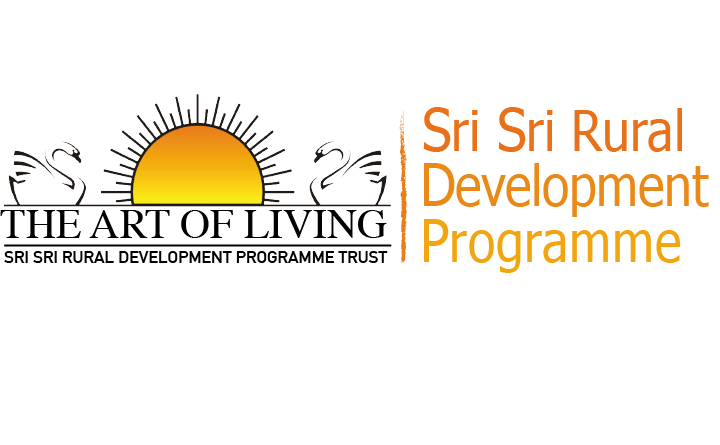PROJECT KISAAN
Small-holder farmers are vital for India’s agriculture production and rural economy. Moreover they constitute more than half of the national population. But under the existing economic conditions, the Small Farm Holder’s face many challenges to sustain their livelihood. Their sensitive economic conditions besides their limited scale of economy, Low productivity, weather dependency and other socio-political factors have all negatively impacted their livelihood.
Our Initiative with a modest budget and within 3 years, aims to Improve the economic conditions of small farm holders, by addressing the issue of small and fragmented land holdings, through forming of farmer’s collectives (FPO) Farmers Producer Organization.
CHALLENGES FACED BY THE FARMERS
Farm production and productivity is not as big barrier in economic development of farmers as the weak market linkages restricting best bargain and high transaction cost of farm produce and farm inputs/services due to fragmented and small-holdings. Nearly 80% Indian farmers (Small Holder Farmers) have a net annual income of less than INR 70,000. Due to small ticket size of transaction, SHFs have no access to the services of agriculture value chain, which has number of inefficient and opaque layers between farmers and businesses.
WHAT IS FARMERS PRODUCER ORGANIZATION (FPO)
FPOs) are one such farmers’ aggregate, an organizational mechanism mobilizing farmers’ collective that seeks to improve their own economic and social situation and that of their communities. The strategies will hinge around reducing transaction cost of farm produce, realize better price of produce and get better inputs at optimum cost through collective bargaining, add value through primary processing, sorting, grading, reduce field and post-harvest losses etc. Collectives and individuals will be capacitated for efficient participation in value chain under professionally managed FPOs which will be federated up to National level to provide continued and sustained support to FPOs after project.
GOALS

To form 50 Farmers Producer Organizations in 10 states during three year’s tenure of project
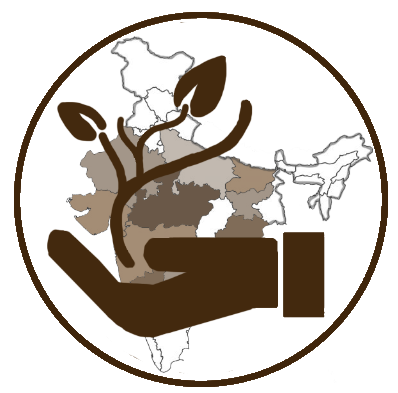
To engage with 50 lakh small and marginal farmers from 10 states and organize them to become shareholders/members of FPO

To stabilize all 50 FPOs in business operations to achieve transaction efficiency to improve farmer’s income by 50%, besides enhancing farm output and promoting market driven farm practices.

To collectivize all FPOs to federate them at state and national level to provide continued and institutional support to FPOs for growth and sustainability.
PROJECT APPROACH & STRATEGY
In each selected state, four to five geographical area will be identified on the basis of potential of cluster formation for one or two agricultural commodity or products. Farmers of identified geographical area will be mobilized, organized and supported to form Farmer’s Producer Company (FPO) taking one or two principal Commodity or Product in a Cluster approach. The spread and catchment of a FPO in a geographical area will be generally covering a block/taluka.

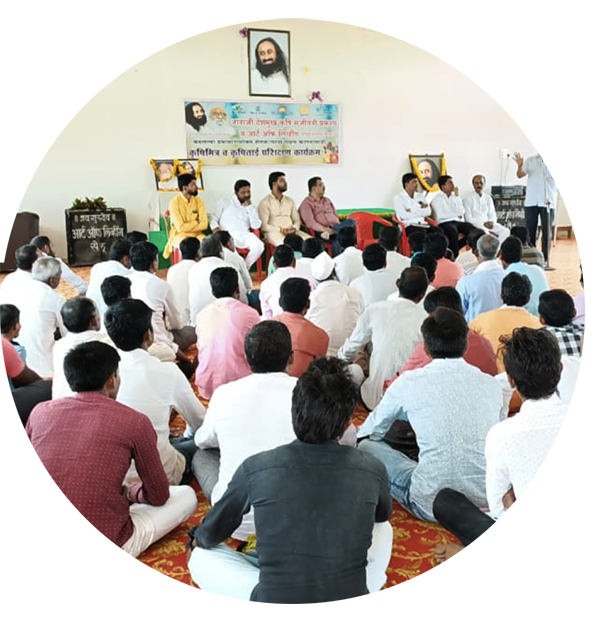
Each FPO will develop a membership of Five thousand Small Holder Farmer (SHF), which will be facilitated to grow up to Ten thousand SHF member within the project period. One FPO, depending upon population density of region, will cover 40-50 Revenue villages/Gram Panchayat.
Each state will have 4-6 FPOs, depending upon existence of product clusters, product strength, geographical advantage and business opportunity/feasibility/viability.


All FPOs in a State will be federated to a State level Federation, which will be eventually federated at National Level. These Federations will support FPOs in linkages at National and Global level and provide Institutionalized support to FPO.
Business plan of FPOs will be built on the basis of geographical advantages, market potential of product and farmers abilities to scale up. Accordingly, all infrastructure development, technical and material inputs will be mobilized as provisioned in various government schemes. Advantage of recently announced reforms in EC Act, APMC Act, and Contract Farming will be fully realized by developing appropriate business plan.

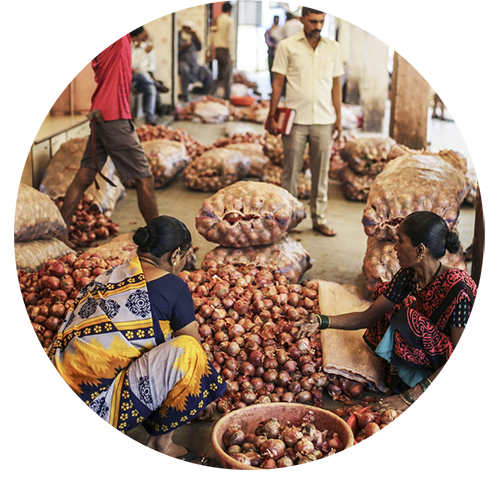
Aggregation of input-output and services will be core business strategy of FPO with value addition, storage, logistics and branding as major business driving operations. Business partnership with private players in input/service sourcing, NCDEX, A-NAM for output linkages will be established.
Application of technology, including ICT, IoT, Precision farming, sustainable agriculture, resource conservation technology and climate resilient orgnanic practices will be cross cutting approach for all FPOs.
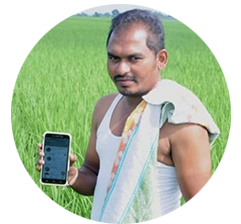

Al agriculture interventions, like crop specific package of practices, crop productivity enhancement, crop loss prevention etc. will be designed as per local context.
Required agri expertise with related trainings, knowledge transfer will be availed from Technical Institutions (ICAR/SAUs) and Sri Sri Agri Institute
OUR INNOVATIVE METHODOLOGY
- Sustainability in the core essence of this project. FPOs needs long term support to sustain, grow and expand. Federation of FPOs at State and National level is an Institutional mechanism to provide continued support from strategy to operation.
- Globally proven signature technique of Art of Living for Individual Development to awaken, ignite and motivate human mind, inculcate human values and sense of belongingness will be unique in our approach to mobilize and organize farming community.
- Women Centric approach in formation and operation of FPOs will be taken to achieve better stability, issue based action, open to change and mutually supportive community.
- ICT tools will be used to connect, communicate, train and operate at scale.
EXPECTED OUTCOME
- 50 lakh farmers will get organized in to farmers collectives as FPO
- Farmer’s income will be impacted positively and by end of the project, an average 50%
increase in farmer’s income is expected. - Various farming, logistics and value addition activities will generate at least 20
additional man-days per SHF in villages (50 lacs SHF x 20 = 10 Cr man days/year). - Demonstrate a financially successful and sustainable model of farmer’s collectives in
country for replication.
Jai Jawan Jai Kissan
Your Contribution towards Farming & Agriculture could be the best weapons against Hunger & Poverty, and they have made life better for billions of people
